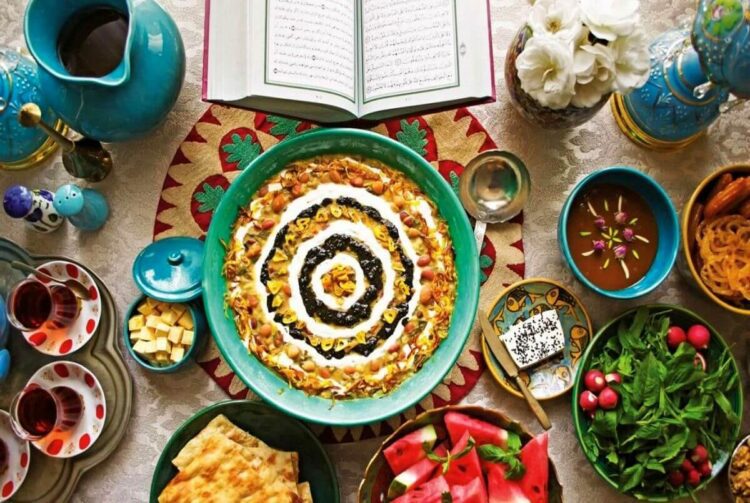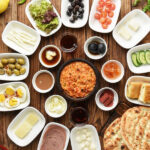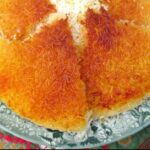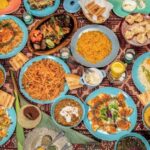Ramadan is the ninth month of the Islamic lunar calendar, in which Muslims around the world fast from sunset to Maghrib adhan. It is a time to get closer to God and focus on strengthening family ties and community spirit. Fasting during Ramadan is one of the five pillars of Islam. Muslims believe that fasting helps them develop self-control, understand, and practice empathy for those who are less fortunate. During this month, Muslims prepare two main meals; the Sahoor meal (dawn meal), which is served before the sunset, and the Iftar meal, which is served after Maghrib adhan.
This article talks about everything we need to know about the Iftar meal. Stay with CookingCounty.

What is Iftar meaning?
Iftar (Arabic: افطار) is the evening meal of Muslims which is prepared during the month of Ramadan. Iftar also is the Persian equivalent of breaking the fast. Sometimes Muslims perform Iftar in groups; sometimes, they prepare Iftar for poor people as they may not fast because they can not prepare it. Iftar is performed immediately after the Maghrib Adhan. At this time, dates are usually used to break the fast.
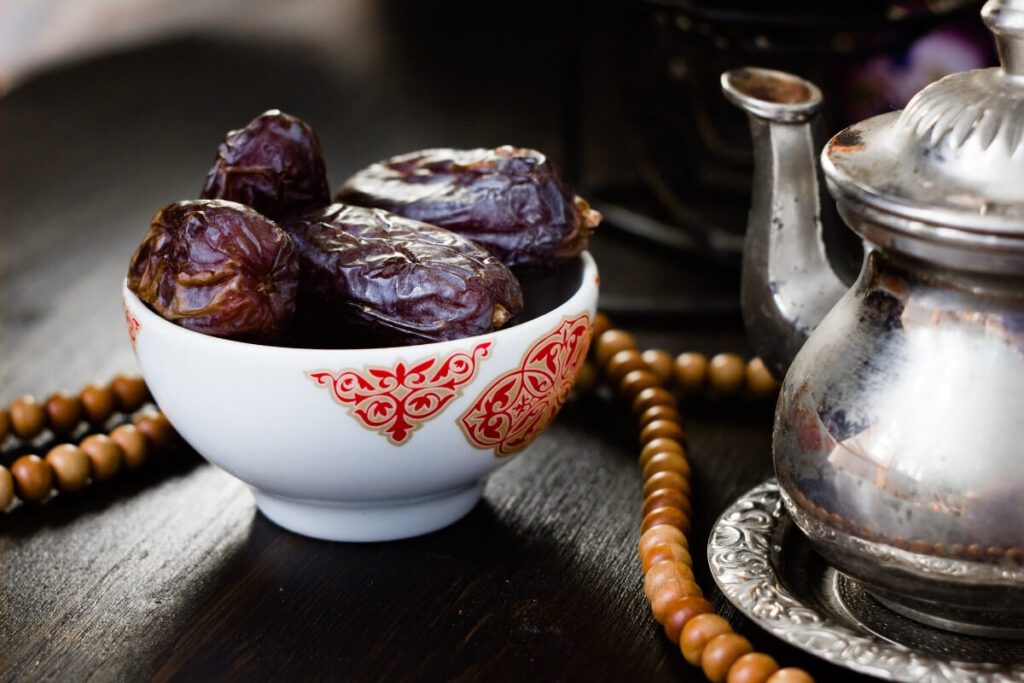
What is the Best Ramadan Meal Plan?
Consumption of healthy and valuable foods in the morning and iftar meals of the Holy Month of Ramadan is necessary to spend a blessed month and, of course, scientifically beneficial for the health of the body. However, how can we have a healthy diet during Ramadan? What is the best Ramadan meal plan?
Healthy Ramadan meal plan
Your Iftar should have the characteristics of a healthy breakfast. Consider a low-calorie, easy-to-digest meal for Iftar. An essential thing in Iftar is your water supply and blood sugar.
- Dates are among the best and most important foods for Iftar that provide glucose and water to your body.
- After Iftar, it is better to drink a glass of water every hour until your dawn meal. Coffee and tea are not among the liquids you should drink; Because they prevent the absorption of minerals and vitamins and consequently dehydration.
- Overeating during Iftar causes many problems in the stomach. Eat less fatty foods during Iftar, as it causes anorexia in the morning meal. Fatty foods take a long time to digest and even disrupt sleep. Eat the Iftar meal properly so that there is no problem with the Sahari meal.
How to Break the Fast?
- At this time, it is better to break the fast with a few dates and then drink lukewarm water or milk. Then, after a few minutes, try another meal.
Note: Rutab or dates contain fructose and sucrose sugars quickly digested and absorbed, especially when the stomach is empty. Drinking water during Iftar relieves the feeling of thirst, and consuming dates reduces the feeling of extreme hunger. Such a habit causes you not to eat a lot at the Iftar table.
- After breaking your fast by drinking warm water and eating dates, it is better to eat some lentil soup and salad. This method completely quenches thirst and hunger. Two hours after Iftar, instead of eating Zulbia and Bamieh or other sweets, it is better to use raw fruits or nuts and peanuts, which are rich in omega-3 fatty acids; Because these are useful for increasing tolerance and quenching thirst.
- Reduce meat consumption as much as possible, especially in summer, because meats have a high potential for producing urinary stones.
- We do not recommend drinking syrups, as they are high in sugar and cause weight gain and belly fat.
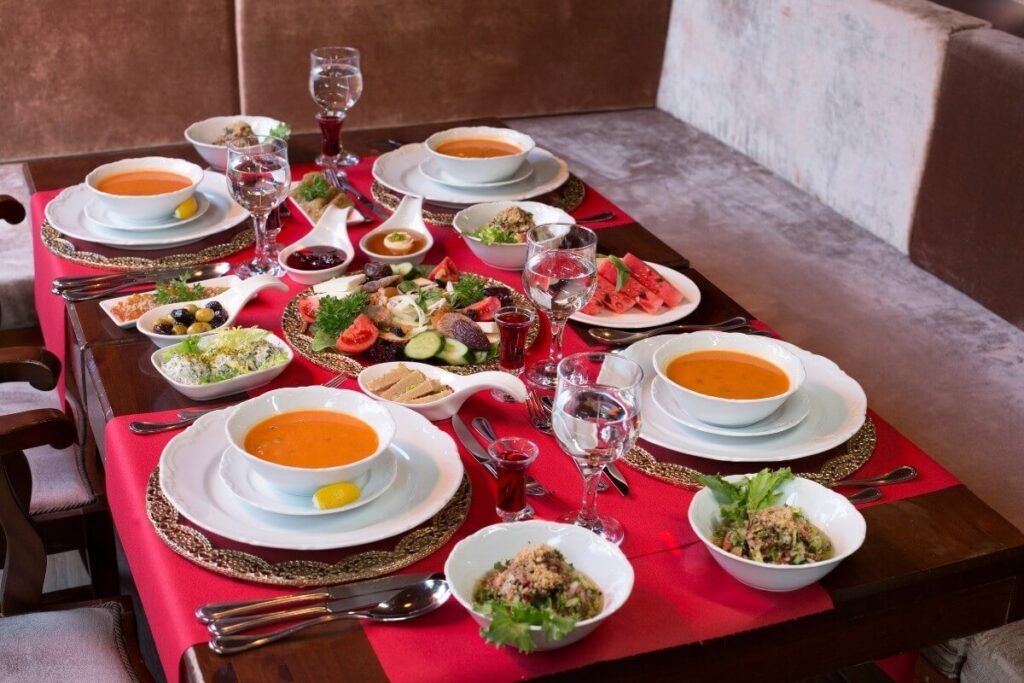
4 Types of Best Healthy Food for Iftar
Foods Full of Potassium
The body uses potassium to perform many essential activities. One of the main functions of potassium is to reduce muscle cramps and balance the body’s fluid and electrolyte levels. Foods high in potassium include beans, dark green leafy vegetables, potatoes, squash, yogurt, avocados, mushrooms, and bananas.
In addition, to have energy, dates are also high in potassium. As mentioned, dates are a great option to start Iftar. Dates help to replenish the body not only quickly but also quickly restore the energy lost during fasting.
Raw nuts
Almonds contain tonic and nutritious fats for the body, especially when your body is hungry for hours. After many hours of fasting, Raw nuts help you get full and replenish your lost energy.
Watery fruits
Cucumbers, lettuce, and other vegetables and fruits high in fiber and water are great options for Iftar. Eating these fruits helps regulate your body temperature and is very good for skin health and preventing constipation.
Liquids
In Ramadan, you will surely suffer from dehydration. Therefore, it is better to make up for this deficiency by consuming the right drinks. Dehydration causes many problems for the body. Just be careful to make the following syrups with less sugar.
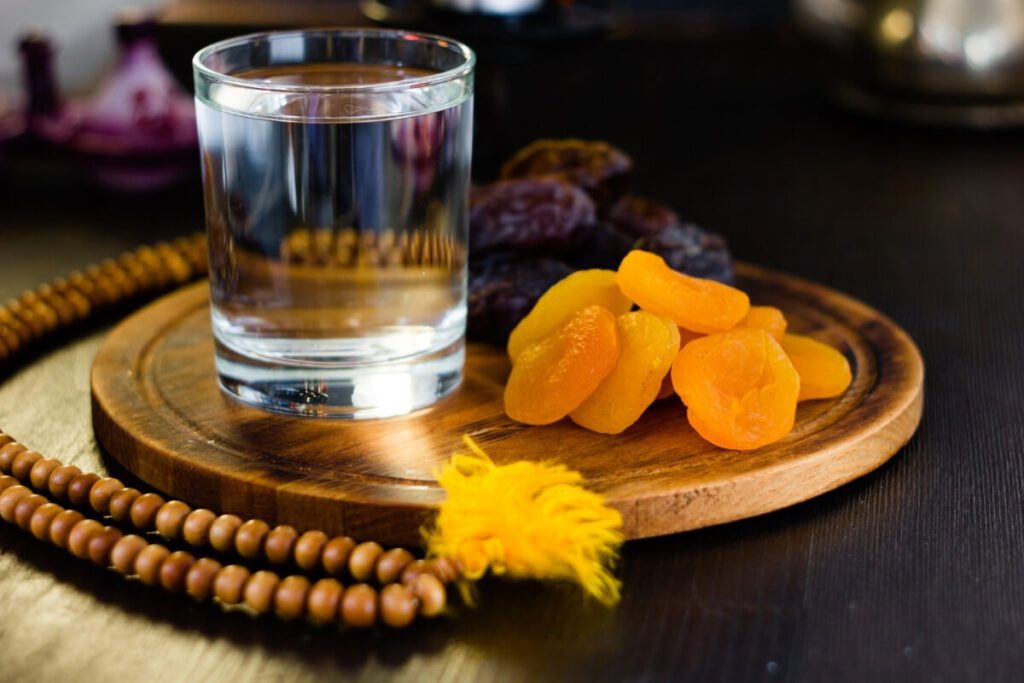
These drinks include:
lemonade: 100 grams 264 calories
It causes salivation in the mouth and relieves the feeling of thirst for fasting.
Ash syrup: 100 grams of 100 calories
It holds a lot of water in its seeds and gradually delivers it to the body. As a result, it irrigates the body for a long time.
Peppermint syrup: 100 grams 192 calories
Make this syrup with sorrel seeds to quench your thirst for a long time.
Chicory syrup: 100 grams of 100 calories:
It has the property of cooling the body and helps to quench the body’s thirst after a long fast.
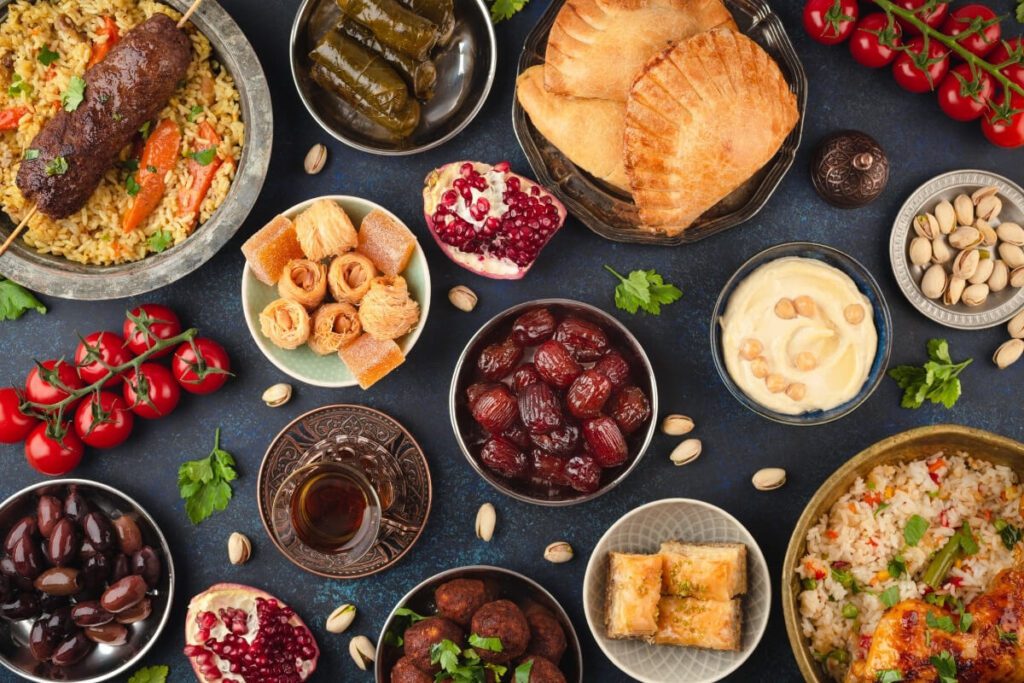
Foods that You Should Avoid Eating During Iftar
Sodas
Avoid carbonated and processed beverages. These drinks are generally high in sugar; As a result, they increase your risk of gaining weight. They also cause bloating and gastrointestinal dysfunction. Drink plenty of water to quench your thirst during Ramadan. You can use juices like coconut water instead of plain water.
Fried foods
Do not eat foods such as samosas, sweets, and other fried and fatty foods for your iftar meal. These foods are stored as adipose tissue in the body. After hours of not eating and drinking, eating high-fat foods can cause acidification of the body and digestive problems.
Cold Water
The use of cold water causes disorders of the nervous and digestive systems. The stomach environment is hot, and cold water entry into the stomach interferes with digestion and absorption of food. Drinking warm water or milk is better to quench your thirst.
7 Best Iftar Meals You can Serve at the Table
1. Sholeh Zard
Sholeh Zard is one of the delicious traditional dishes always considered in Nazri and Ramadan. Rosewater and saffron play an essential role in their smell. The cooking recipe also needs ingredients such as Iranian rice, sugar, water, butter, cardamom, gelatin powder, sliced almonds, and cinnamon.
2. Porridge
Porridge is one of the delicious and nutritious desserts suitable for both children and fasting people during the Holy Month of Ramadan. This dessert is made quickly and in a few minutes.
3. Halva
Halva is among the traditional Iranian desserts that are tasty and usually served with tea. It is made with white flour, but wheat flour can also be used to make Halva for the Iftar meal.
4. Zoolbia and Bamieh
One of the special sweets for Ramadan is Zulbia and Bamieh, which are usually served with tea. When preparing the iftar table, this sweet is usually on the table.
5. Ranginak with dates and walnuts
This authentic sweet is mainly made in the south of Iran during Ramadan. Butter, flour, cinnamon powder, cardamom powder, walnuts, and coconut powder are used as ingredients in Ranginak. Pistachios are also used to design the sweet.
6. Cachi
Iranians have a long-standing tradition to eat Cachi for Iftar, especially Tabrizi’s. Cachi is an Iranian dessert and snack that can even be enjoyed as dinner. This dessert is very nutritious because it uses butter, flour, and saffron in its preparation. For this reason, for women who have just given birth, Cachi has long been made to regain their physical strength.
7. Shir Berenj
Rice pudding or Shir Berenj is generally consumed with sugar and syrup and is made with milk and rice. A simply made and tasty Iranian dish, Persian rice pudding or Shir Berenj is one of the oldest and most traditional dishes in Iranian cuisine.
A Simple Recipe for Making Shir Berenj
Ingredients
- ½ cup rice
- 5 to 6 cups of milk
- ½ cup rosewater (or cardamom sweat or Egyptian willow)
- 1 tablespoon sugar
Directions
Step One
Wash the rice and pour water over it. After an hour, simmer with a bit of water and then add milk and leave it on medium heat until the condensed milk and rice are thoroughly cooked, and the rice milk is glazed.
Step Two
Finally, add rose water and sugar and turn off the heat after boiling for a few minutes.
Step Three
To serve Shirberenj, you can either heat it or have it cold. Both versions are delicious, but sprinkle some cinnamon and pistachios on Shir Berenj for a nice treat!
Note: Some people add salt to Shir Berenj instead of sugar, and some people sprinkle sugar on rice milk or use jam instead of sugar. Depending on the family’s taste, increase or decrease the type and amount of salt or sugar.
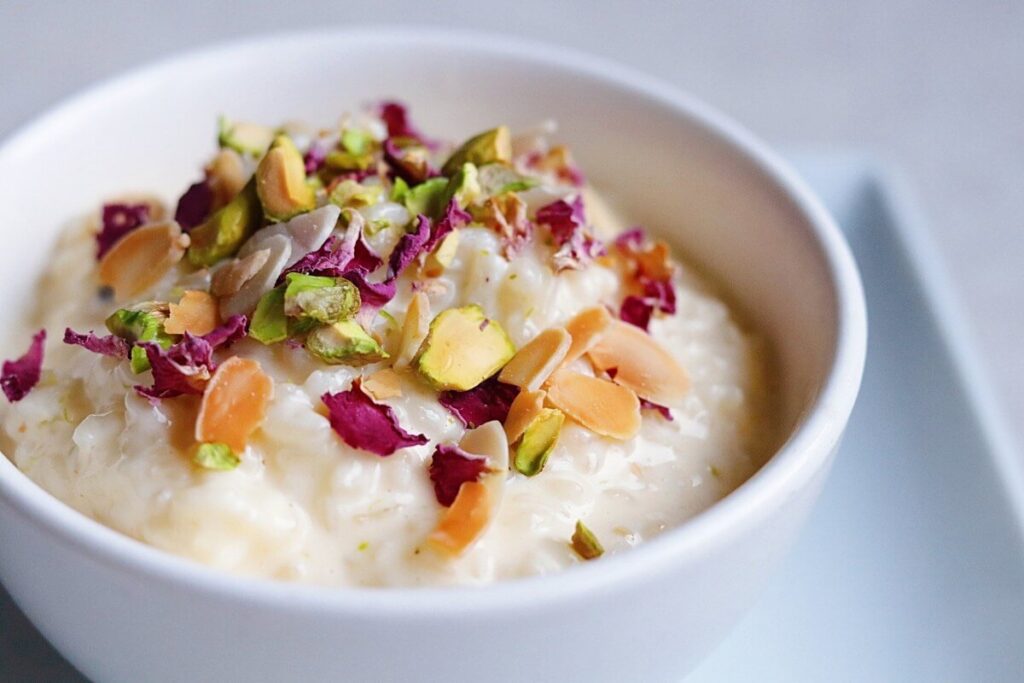
Vegetarian Iftar Meal
Vegetarian Iftar meals can include:
- First, drink a cup of herbal tea, then some fruit of any kind you want.
- The fruit should be eaten slowly and chewed well. Then, after an interval of fifteen to twenty minutes, you can use raw vegetables as a salad, or if you do not want to, use various steamed vegetables. These vegetables can include carrots, winter and summer squash, cauliflower, and broccoli. Of course, there is no problem preparing a simple soup of these vegetables.
- After that, you can use a bit of cooked cereal or beans. The best way to prepare these ingredients is to soak them for one or two days until they produce sprouts. Then, if you do not want to eat these sprouts raw, you can steam them in a short time, for example, ten minutes, and enjoy your meal.
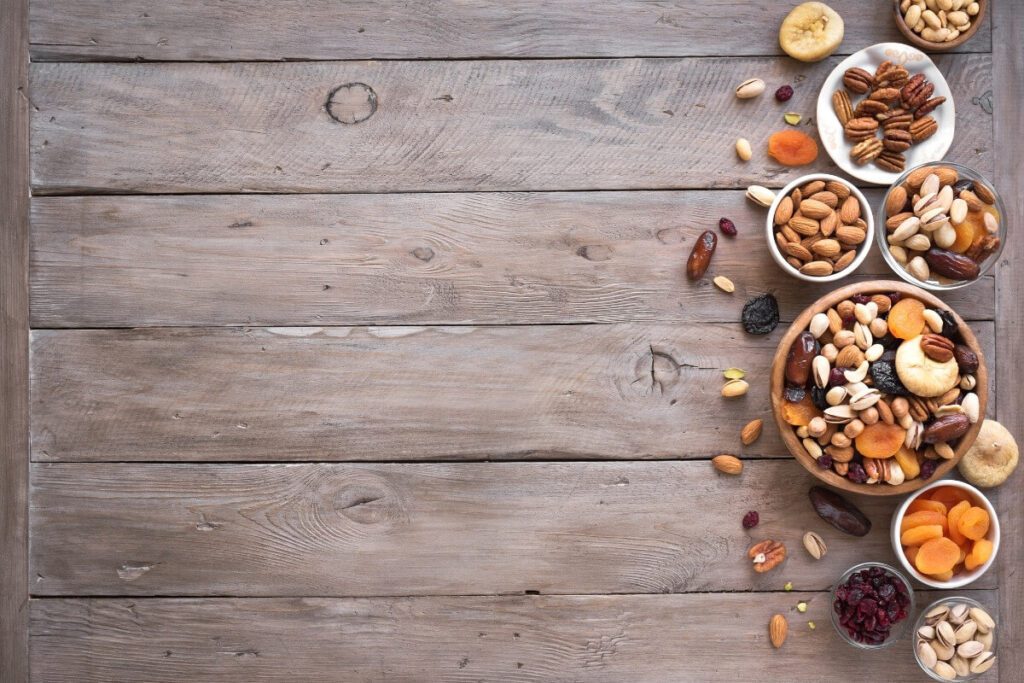
Iftar Meal for Raw Veganisms
- If you are a raw vegan, start your diet with fruits (usually sweet fruits such as watermelon and cantaloupe.) After that, you can eat a joint salad of different vegetables and sprouts and then some seeds such as sunflower seeds or pumpkin seeds soaked.
- Avocado is very good with salads. Avoid sweets such as dates or fruits after your meals. Fruits and sweets should generally be eaten on an empty stomach before anything else. Also, do not mix sour and sweet fruits.
- Consumption of starches with sugars also impairs digestion. So the best way is to eat fruit first, then vegetables and salads with avocado and some seeds or nuts, and then if you still feel hungry, eat cooked vegetables or legumes and cereals (starches and protein). Avoid drinking water and fluids during meals. Try to drink about two hours after meals (water should be drunk before meals and on an empty stomach.)
Tips that Vegetarians can Use when Fasting
- Ramadan High-protein crepes can be made using quinoa flour and a mixture of any lentils mixed with grated carrots, sugar beets, and plants rich in corn protein (meat substitute).
- Rice can be eaten with meals that include beans and high-protein plants to maintain nutritional value.
- Curd cheese and vegetable salad are also very healthy.
- Quinoa tabbouleh salad and cabbage bread are very healthy snacks.
- High-fiber vegetables include spinach, mushrooms (Mushrooms are a nutritious plant appetizer,) squash, asparagus, and broccoli.
How to Cook Spinach Borani for Vegetarians?
Ingredients
- One kilogram of spinach
- 1 medium onion
- 2 garlic cloves
- Olive oil as needed
- Salt Black pepper as needed
- 4 tablespoons strained yogurt
- Turmeric seeds as needed
- 2 tablespoons butter
- 1 tablespoon chili pepper (optional)
- 1 tablespoon ground red pepper
Directions
Step One
Add the olive oil to a large skillet; after heating the oil, fry the onion and garlic until browned. Then add the spinach and cook for a few minutes. After cooking the spinach, pour it into a bowl to cool;
Step Two
Add yogurt to it and mix well and transfer to a serving dish. Roast the turmeric seeds in a small pan until lightly browned and set aside.
Step Three
Pour the butter into the pot and melt it; add the red pepper and chili pepper and wait a while for them to fry well. When the oil is ready, pour it on the Spinach Borani and sprinkle the roasted seeds on the Spinach Borani and serve.
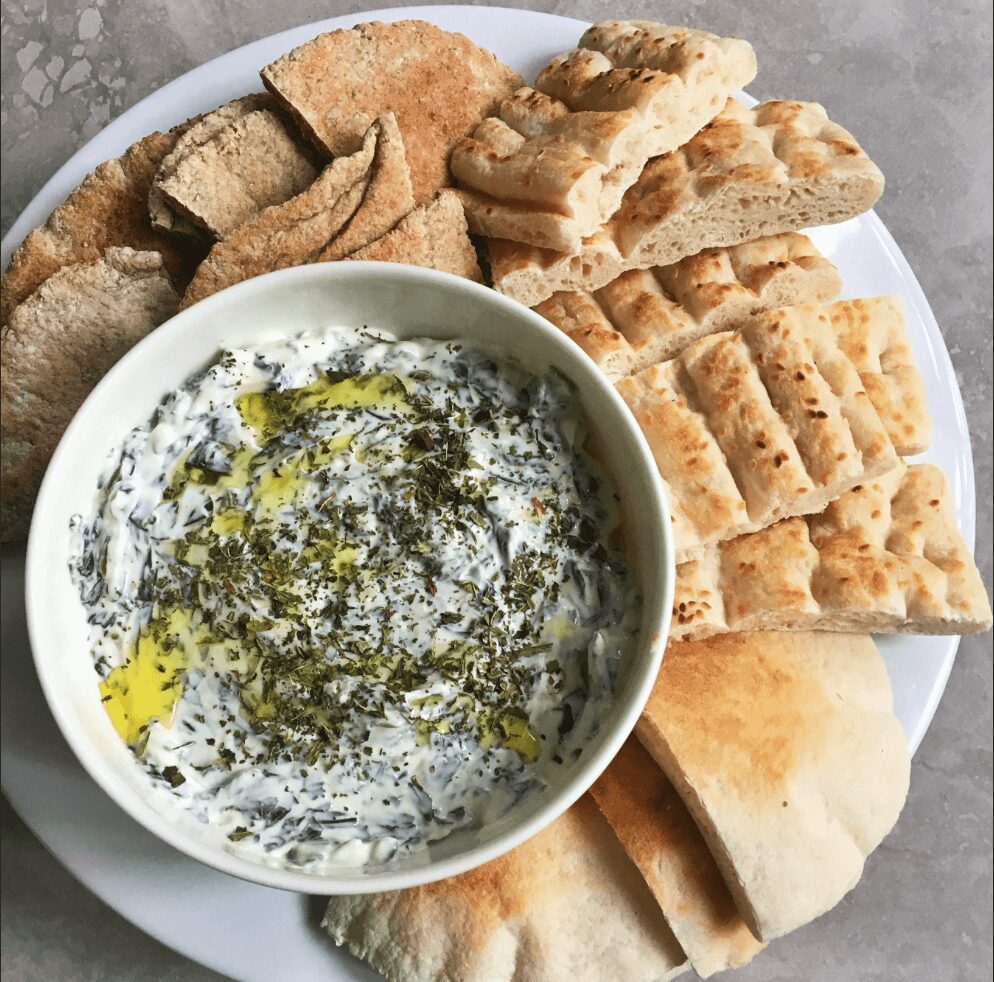
The Iftar meal is an important part of the Ramadan tradition. The Iftar meal is a type of celebration for those fasting, provides nourishment for the body and mind, and is also a time for friends and family to come together and focus on their prayers, reflection, and charity. If you also have any related questions about the Iftar meal, please do not hesitate to ask.

